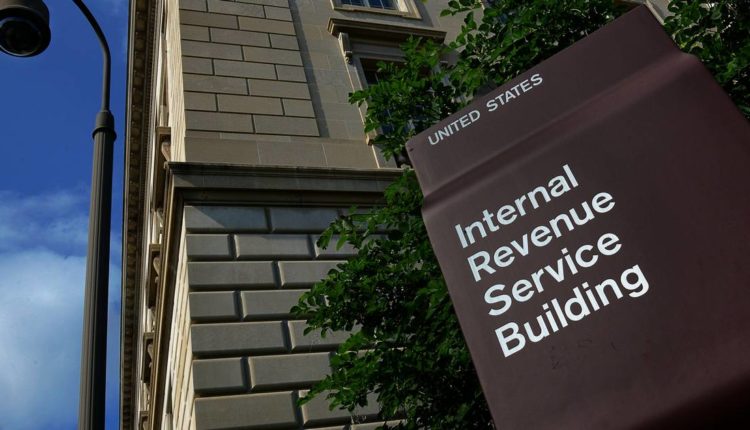Many Americans do not save enough for retirement, but it is entirely possible to save too much – at least according to the IRS.
Tax laws limit the amount you can pay into retirement accounts, and excess contributions may be penalized. Uncle Sam doesn’t even want you to leave money in your account for too long. Those who do not take enough from their pension accounts also face heavy penalties.
Here’s what you need to know to stay on the right side of Tax Administration rules.
WEIGHTING YOUR PENSION BILLS
Not everyone is allowed to contribute to pension accounts. Contributions to the IRA or Roth IRA require that you or your spouse have “earned income,” such as salaries, wages, bonuses, commissions, tips, or self-employment income. Pension payments, social security benefits, rental income and interest and dividends do not count. Also, the ability to contribute to Roth is being phased out with modified adjusted gross income between $ 125,000 and $ 140,000 for individual files, from $ 198,000 to $ 208,000 for married couples filing together.
People may not realize that the annual limit on IRA contributions – $ 6,000 for 2021, plus the $ 1,000 supplement for people over the age of 50 – is the limit for all IRA accounts. In other words, you can’t invest $ 6,000 in a traditional IRA and another $ 6,000 in a Roth IRA in the same year.
You can also contribute too much to a work plan like 401 (k), especially if you change jobs during the year. Your new employer won’t know if you’ve already contributed to a previous employer’s plan that will count toward annual limits (typically $ 19,500 for 2021, plus $ 6,500 in compensation for people over 50), says tax expert Mark Luscombe, chief analyst Wolters Kluwer Tax & Accounting.
Even if you do not change jobs, your 401 (k) contributions may be limited if you are considered a “highly compensated employee”. This can happen if not enough low-paid workers contribute, and you own more than 5% of the company, earn more than a certain amount (currently $ 130,000) or are among the top 20% of employees ranked by compensation. Your excess contribution will be sent to you as a check or other payment.
HOW TO LIMIT DAMAGE
But it is usually up to you to discover and fix the excess contribution. If you catch the problem fast enough – before you file a tax return for that year – you can limit the damage by withdrawing the excess contribution, says financial planner Robert Westley, a member of the American Institute of CPA’s Financial Literacy Commission. You should also withdraw the earnings that can be attributed to that contribution.
Withdrawals will be taxed as income. If the money comes from the IRA, you may owe a 10% penalty on early earnings withdrawal if you have less than 59 ½, Westley says.
If you miss the tax deadline, the excess contribution for each year can be applied to the IRA. An over-contribution of 401 (k) can trigger double taxation: excess contributions and earnings are taxed when they are withdrawn, but the contribution is also added to your taxable income for the year you made the contribution, Westley says. Contact a tax professional to discuss your options.
A HEAVY PENALTY NOT TO WITHDRAW ENOUGH
You do not have to take distributions from the Roth IRA during your lifetime. However, on other retirement accounts you usually need to start raising the minimum amounts after you turn 72. The age was 70 ½, but the Law on Setting Up Any Community to Improve Pensions changed that for people born after June 30, 1949. the first distribution by April 1 of the year following the 72nd birthday. Thereafter, distribution must be made annually by 31 December.
Miss a deadline or take too little, and the IRS penalty is 50% of the amount you should have withdrawn but didn’t.
If you are still working at age 72 and your plan allows it, you can defer the required minimum distributions from your current employer’s plan of 401 (k), 403 (b) or other defined contribution until you retire (unless you have 5 % or more jobs). Even if you work, you must begin a minimum withdrawal from previous employer plans, as well as from IRAs and self-employed retirement plans, including SEP and SIMPLE.
Following your death, the SECURE Act generally requires your heirs to empty retirement accounts, including Roth IRAs, within 10 years, although there are exceptions for surviving spouses, people with disabilities or chronic illnesses, minor children, or heirs no older. 10 years younger than the IRA account holder. (This is a new rule that applies to people who die after 2019)
Once again, the rules are complex enough that it’s worth consulting a tax professional to make sure you don’t end up paying taxes much more than you need to.
This column was provided to the Associated Press by the personal finance site NerdWallet. The content is for educational and informational purposes and does not constitute investment advice. Liz Weston is a NerdWallet columnist, certified financial planner and author of “Your Credit Score.” Email: lweston@nerdwallet.com. Twitter: @lizweston.

